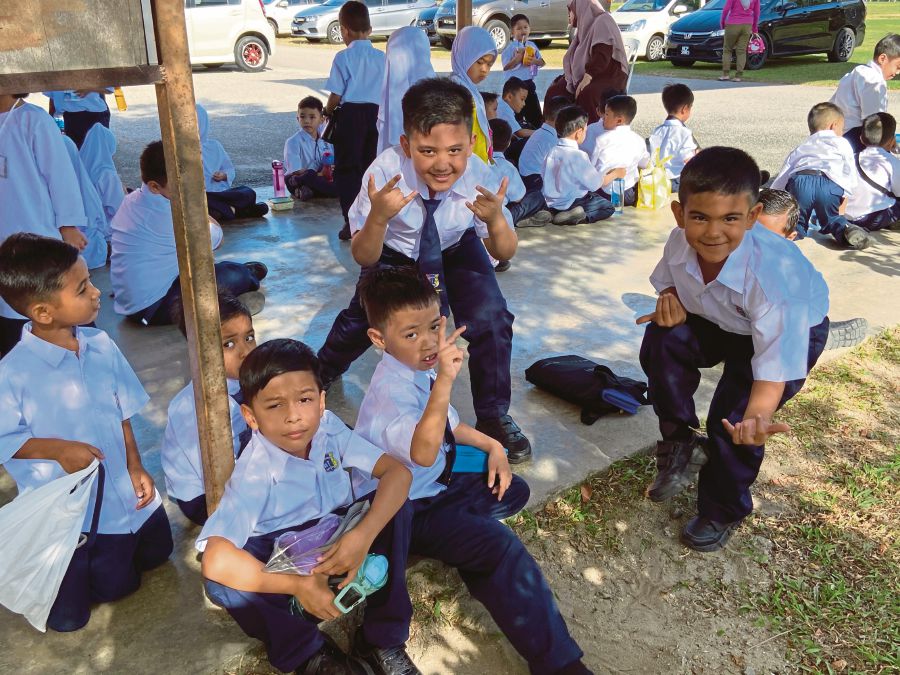‘Lost generation’ danger

“If schools stay shut, in about 10 years we will probably find a lot of dysfunctional people growing up in these shut schools. How many will return after school reopens?
(NST) – The Covid-19 movement restrictions and school closures could put the future of an entire generation at risk if the government and stakeholders fail to make efforts to prevent disruption to the education system.
Educationists believe that the flood season has also compounded problems for schoolchildren, with online lessons possibly affected due to a lack of Internet connectivity at flood relief centres, thus further pushing back their education year.
They believe that to avert creating a “lost generation”, the authorities need to address the digital divide and reopen schools (with staggered schedules), distribute devices and s et up hotspots mainly at community centres, B40 localities and flood relief centres, and deploy mental health experts to support teachers and students.
National Science, Technology, Engineering, and Mathematics (STEM) Movement chairman Professor Datuk Dr Noraini Idris of University Malaya said disruption to schooling had led to students neglecting their education or dropping out to support their families.
“Some of them, especially the older siblings in B40 families, have dropped out of schools to sell food by the roadside. These are talented kids with the willingness to learn, but are now sacrificing their lives to earn a living.
“If we don’t come up with a serious and strong action plan to help our students, we are risking theirs and the future of the country that will be deprived of talent.”
She said schools could be opened in phases, with priority given to secondary school students and primary 4, 5 and 6 pupils to ensure that SOPs could be observed. “Students from each form could meet their teachers at least once a week.
For instance, Form 5 students on Mondays. “It is very challenging now for both students and teachers to conduct lessons, especially those in STEM classes, which require visualisation and practical work.
“It’s doable in Parliament (crowd control) and people are allowed to go out to malls and offices, so why can’t we also organise a systematic way of allowing students to go to school?”
Telcos and industry players may help by offering their premises (halls or computer centres) and setting up hotspots at housing areas, community centres, surau or mosques, she added.
Professor Datuk Dr Abdul Rashid Mohamed of the Academy of Professors Malaysia said if schools were to remain shut, the government should increase access to online classes, expand digital lessons through television to provide classes to children of all ages throughout the day, and educate parents to inculcate learning outside the classroom.
“Short- and mid-term devices should be distributed to specific centres such as schools, mobile libraries, community centres in flats, villages and longhouses.
“University students could be deployed to these centres to facilitate the learning. In the long term, we need to expand the coverage of digital access to include all children in Malaysia.
“Nobody should be left behind.”
He described the Covid-19 situation during the flooding season as “double jeopardy” and said the question of how to ensure children’s education was not harmed due to the weather should have been envisioned by the authorities, as flooding is a common occurrence in Malaysia.
“Issues on how students are to cope with online learning, especially at relief centres, are plenty — mainly technical issues such as access to high bandwidth or strong Internet connection that online courses require for virtual classes.”
These, he said, could be overcome by turning to asynchronous learning — made up of pre-built course components, allowing students to complete them at the time and pace of their choosing.
He also said while Education TV offers a quick-fix solution, its broadcast period and content should be enhanced. Additionally, he said, telco companies could help by not terminating services, keeping public Wi-fi hotspots open, and waiving any late fees, including coverage and subscription fees for residential areas.
Telcos should also relax deadlines on device activation, replacement, return and repair, while the government should encourage the sharing of bandwidth across different telcos, he said.
Rashid called on the Education Ministry to reveal its plans for schools and the public, saying that the ministry had thus far unveiled only one — the shutting and opening of schools — as Covid-19 would most probably stay until next year.
“So, are schools going to stay shut indefinitely? “The alleged benefits of school closures to curb virus transmission should and must be balanced against adverse effects in other areas, especially socio-cultural development.
“If schools stay shut, in about 10 years we will probably find a lot of dysfunctional people growing up in these shut schools. How many will return after school reopens?
“It is not a question of whether there will be dropouts, but how many? Will they be our lost generation?
“SOPs have been rolled out while waiting for the vaccine to be ready. In the meantime, we have a very important task and that is to ensure our children in schools now don’t become the lost generation of the future.”
Universiti Malaya socio-political analyst Professor Dr Awang Azman Awang Pawi said the digital divide would result in a gradual education gap eventually preying on the poor, the low-income and the less affluent.
“This endangers the education system that all Malaysians should be able to enjoy without any constraint,” he said.

